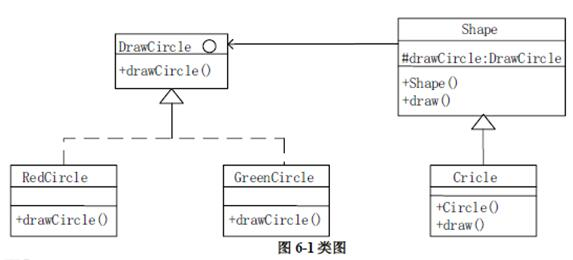分析以下程序的执行结果【】。include class S{ int A[10]; public: int &operato分析以下程序的执行结果【 】。include <iostream. h>class S{int A[10];public:int &operator () (int);};int &S: :operator() (int x) {return A[x];}void main() {S a;int i,j;for (i=0; i<10; i++)a(i)=i*2;for (i=0; i
题目
分析以下程序的执行结果【 】。
include <iostream. h>
class S{
int A[10];
public:
int &operator () (int);
};
int &S: :operator() (int x) {
return A[x];
}
void main() {
S a;
int i,j;
for (i=0; i<10; i++)
a(i)=i*2;
for (i=0; i<10; i++)
cout<<a(i)<<" ";
cout<<end1; }
相似考题
更多“分析以下程序的执行结果【】。include <iostream. h>class S{ int A[10]; public: int &operato ”相关问题
-
第1题:
有以下程序 includeinclude int fun(int n) {int * 有以下程序 #include <stdio.h> #include <stdlib.h> int fun(int n) {int *p; p=(int*)malloc(sizeof(int)); *p=n; return *p; } { int a; a=fun(10); printf("%d\n",a+fun(10)); } 程序的运行结果是______。
A.0
B.10
C.20
D.出错
正确答案:C
解析:malloc(sizeof(int))的作用是开辟一个长度为sizeof(int)存储空间,并通过强制类型转换(int*)将此存储空间的地址赋给了—个整型的指针变量p。然后执行语句“*p=n”,使得*p的值为10,并通过返回此值,在主函数中输出a+10的值,即输出20。 -
第2题:
以下程序执行后的输出结果是include.using namespace std;void try(int,int,int,int) 以下程序执行后的输出结果是 #include<iostream>. using namespace std; void try(int,int,int,int); int main() { int x,y,z,r; x=1; y=2; try(x,y,z,r); cout<<r<<end1; return 0; } void try(int x,int y, int z,int r) { z = x+y; x = x*x; y = y*y; r = z+x+y; }
A.18
B.9
C.10
D.不确定
正确答案:D
解析:本题考核函数调用(参数的传递)。本题常见的错误解答是:把x=1,y=2代入到函数try中,逐步计算出r=8。最后得到r的输出值是8。以下是正确解答,根据程序逐步分析:程序中定义了一个名为try的void型函数,即函数try没有任何返回值。而try函数在main函数中是以一条独立语句的方式被调用的,且main函数最后输出变量r的值。但在main函数中,并没有对变量r赋值。在C++语言中,数据只能从实参单向传递给形参,称为按值传递。也就是说,当简单变量作为实参时,用户不能在函数中改变对应实参的值。所以虽然在函数try中,r的值为8,但它并不能传递给实参,当然最终的输出肯定是不确定的随机数了。 -
第3题:
下列程序段执行结果是___________。 x = 1 print(type(x)) x = 1.0 print(type(x)) x = '1.0' print(type(x)
A.<class 'int'> <class 'float'> <class 'str'>
B.<class 'float'> <class 'int'> <class 'str'>
C.<class 'str'> <class 'float'> <class 'int'>
D.<class 'str'> <class 'int'> <class 'float'>
C.循环执行1次 -
第4题:
有以下程序:includevoid fun(int* s,int* * d){* *d=*(s+2);}main(){ inta[]={1,2,3, 有以下程序: #include <stdlib.h> void fun(int * s,int * * d) { * *d=*(s+2); } main() { int a[]={1,2,3,4,5},*b; b=(int *)malloc(sizeof(int)); fun(a,&B) ; printf("%d\n",*b+1); } 程序的输出结果是( )
A.2
B.3
C.4
D.5
正确答案:C
-
第5题:
阅读下列说明和C++代码,填写程序中的空(1)~(6),将解答写入答题纸的对应栏内。
【说明】
以下C++代码实现一个简单绘图工具,绘制不同形状以及不同颜色的图形。部分类及其关系如图6-1所示。

【C++代码】
#include?#include?using?namespace?std;class?DrawCircle?{??????//绘制圆形,抽象类? ? ? public: (1);//定义参数为?int?radius,?int?x,?inty? ?virtual~DrawCircle()?{?}};class?RedCircle:public?DrawCircle?{????//绘制红色圆形? ? ? ? public: void?drawCircle(intradius,?int?x,?int?y)?{cout?<?drawCircle?=?drawCircle;? }? ?virtual~shape()?{?}? public:? ?virtual?void?draw()?=?0;};class?Circle:public?Shape?{????//圆形? ? private:? ? ?int?x,y,radius;? ? public:? Circle(int?x,inty,int?radius,DrawCircle?*drawCircle)? (3)? {? this->x?=?x;? ?this->y?=?y;? ? this->radius?=?radius; }? ? ? public:? void?draw(){? drawCircle?-> (4); }};int?main(){Shape?*redCirclenew?Circle(100,100,10,????(5)????);//绘制红色圆形? Shape?*greenCircle=new?Circle(100,100,10, (6)??);//绘制绿色圆形redCircle >draw();? ?greenCircle?->draw();? ?return?0;}答案:解析:(6)(1)void drawCircle (int radius,int x,int y)
(2)DrawCircle*drawCircle
(3)drawcircle
(4)drawCircle(radius,x,y)
(5)new RedCircle()
(6)new GreenCircle()【解析】
第一空是填接口里面的方法,在接口的实现里面找,可以发现应该填void drawCircle (int radius,int x,int y)。
第二空可以根据后面this drawCircle=drawCircle判断,这里应该有一个drawCircle属性,因此应该填)DrawCircle drawCircle。
第三空这里填drawcircle,用-> drawcircle来引用父类的成员。
第四空调用drawCircle(radius,x,y)方法。
第五、六空分别创建一个红色圆形对象和一个绿色圆形对象作为Circle里面的实参。
